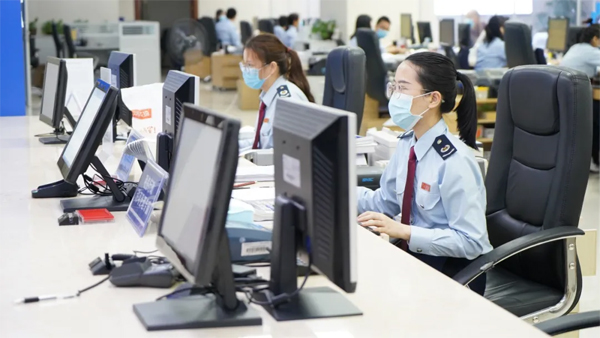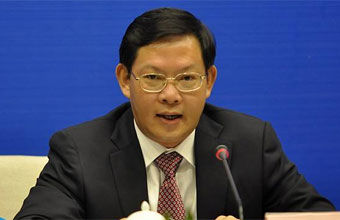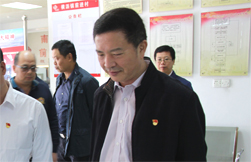Home> News
Adjusted tax policies relieve business pressure in Zhanjiang
Tax policies have been adjusted by the State Administration of Taxation (SAT) since the outbreak of the novel coronavirus (COVID-19) pandemic, aiming to reduce the cost burdens of enterprises and improve the international competitiveness of products.
The adjusted tax policies include lowering the value added tax (VAT) rate, increasing the tax refund rate, raising the proportion of the research and development additional deduction, as well as reducing the enterprise income tax.
From January to August, the Zhanjiang taxation bureau of the SAT handled export rebates or exemptions totaling 1.16 billion yuan ($171.71 million).

The tax service hall in Zhanjiang. [Photo/WeChat account: gh_af724c75e13a]
The tax refund rate adjustment involves 124 varieties of export commodities in Zhanjiang, with a total export value of $272 million. Among them, the export of steel and iron products, livestock, as well as living plants benefited the most.
"Due to the less optimistic earnings of the whole iron and steel industry, that the country reduced or exempted tax fees has undoubtedly injected new vitality into the development of enterprises," said Zhou Li, director of the finance department of Baosteel Zhanjiang Iron and Steel Co.
The export tax rebate rate of the company's two major products has been raised from 10 percent to 13 percent. The total exports of Baosteel Zhanjiang in the first half of this year totaled 1.45 billion yuan, a year-on-year increase of 38.98 percent. It is expected that the tax rebated will be increased by 15 million yuan.
In addition, the Zhanjiang taxation bureau has launched contactless tax handling methods like online tax handling and postal delivery of invoices to improve the efficiency, as well as reduce the cost of tax handling.
The average time of tax handling in Zhanjiang has been reduced to three days by the end of August.
- B2B export business launched in Zhanjiang 2020-09-02
- First '9610' export channel launched in Zhanjiang 2020-08-21
- Zhanjiang imports of zirconium and titanium ores rise in Jan-July 2020-08-18

 Print
Print Mail
Mail 5G construction supports Zhanjiang's high-quality development
5G construction supports Zhanjiang's high-quality development
 Acting mayor inspects project construction in Xuwen, Leizhou
Acting mayor inspects project construction in Xuwen, Leizhou Zhanjiang island an "egret paradise"
Zhanjiang island an "egret paradise"  Dancing egrets add vitality to Xiashan
Dancing egrets add vitality to Xiashan